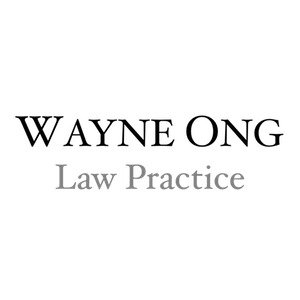Best Housing, Construction & Development Lawyers in Cecil
Share your needs with us, get contacted by law firms.
Free. Takes 2 min.
Free Guide to Hiring a Real Estate Lawyer
List of the best lawyers in Cecil, Singapore
About Housing, Construction & Development Law in Cecil, Singapore
Housing, Construction, & Development Law in Cecil, Singapore is a set of laws and mandates that regulate real estate procedures, housing policies, construction standards, and urban development principles. While it largely follows the framework of general Singapore law, it also includes specific provisions relevant to the Cecil region. Issues ranging from housing policy, real estate leasing and purchasing, construction contracts, building regulations to urban redevelopment projects fall under this branch of law.
Why You May Need a Lawyer
Whether you are a potential home buyer, a homeowner, a construction company, or a property developer, legal situations can arise at any time. You may require a lawyer for matters involving complicated real estate transactions, disputes over leases or property boundaries, construction contract drafting or disputes, compliance with building codes and safety regulations, or lawsuits related to housing policies and development plans. Furthermore, a specialized attorney can help you navigate through the complex local laws and regulatory environment.
Local Laws Overview
Major local laws governing Housing, Construction, & Development in Cecil, Singapore include The Building Control Act, which regulates all matters related to building work and safety; The Housing Development Act, responsible for controlling housing developers and safeguarding the interests of home buyers; The Residential Property Act, which controls the transfer and lease of residential properties; and The Planning Act, which manages the urban development of Singapore. Familiarising with these laws is crucial to avoid legal complications in property-related decisions.
Frequently Asked Questions
What is the Building Control Act?
The Building Control Act is a law that oversees building works and safety of buildings in Singapore. It serves to ensure that all buildings adhere to structural safety and fire safety requirements.
Who enforces the Housing Development Act?
The Housing Development Act is enforced by The Controller of Housing with the purpose of safeguarding the interests of home buyers.
Can foreigners own a residential property in Cecil, Singapore?
Yes, foreigners can own residential properties in Cecil, Singapore, but they are subject to restrictions under the Residential Property Act.
What does the Planning Act cover?
The Planning Act involves urban planning and land-use matters in Singapore. It provides the government the authority to control land use and development.
What happens if I violate construction and safety regulations?
Violations of construction and safety regulations can result in fines, penalties, or even legal actions in court by the Building and Construction Authority (BCA).
Additional Resources
The Building and Construction Authority (BCA), The Housing Development Board (HDB), and The Urban Redevelopment Authority (URA) are key governmental bodies related to Housing, Construction & Development in Singapore that can provide valuable resources and information. In addition, various law firms in Singapore specialise in Housing, Construction, and Development Law and can offer legal assistance.
Next Steps
If you are in need of legal advice or representation in matters pertaining to Housing, Construction, and Development Law, the first step is to conduct detailed research or consult a legal professional. A qualified attorney in this field can guide you through the complexities of local laws, regulations, rights, and obligations, and represent your interests effectively.
Lawzana helps you find the best lawyers and law firms in Cecil through a curated and pre-screened list of qualified legal professionals. Our platform offers rankings and detailed profiles of attorneys and law firms, allowing you to compare based on practice areas, including Housing, Construction & Development, experience, and client feedback.
Each profile includes a description of the firm's areas of practice, client reviews, team members and partners, year of establishment, spoken languages, office locations, contact information, social media presence, and any published articles or resources. Most firms on our platform speak English and are experienced in both local and international legal matters.
Get a quote from top-rated law firms in Cecil, Singapore — quickly, securely, and without unnecessary hassle.
Disclaimer:
The information provided on this page is for general informational purposes only and does not constitute legal advice. While we strive to ensure the accuracy and relevance of the content, legal information may change over time, and interpretations of the law can vary. You should always consult with a qualified legal professional for advice specific to your situation.
We disclaim all liability for actions taken or not taken based on the content of this page. If you believe any information is incorrect or outdated, please contact us, and we will review and update it where appropriate.








